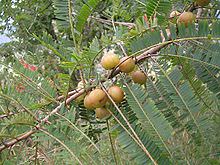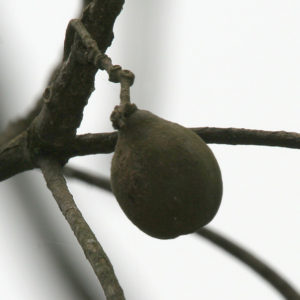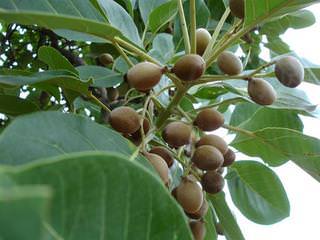Triphala is One of the Most Often Used Herbal Combos in Ayurveda
A Powerful Rejuvenator and Cleanser
Triphala means “three fruits”. Those three fruits are Amalaki, Haritaki and Bhibitaki. Each one is great in its own right, but combined they become Triphala, one of the most important herbs in Ayurveda for balancing the five elements. It is a powerful rejuvenative to all constitutions, a rasayana suitable to all three doshas.
Both Amalaki and Haritaki contain all five tastes, and thus are powerful herbal supplements (Bhibitaki contains three). Loaded with antioxidants!
Triphala has been used for thousands of years in India, proving its usefulness. Its popular mainly for its colon cleansing actions. In Ayurveda, the colon is the seat of good health. Regular consumption of triphala gently and slowly purifies the entire digestive system, rejuvenating down to the cellular level. This actual helps more food absorption to take place leading to healthy weight-loss (more energy from food means less calories to eat) and boosting ones quality of life.
Amalaki

Also known as Indian Gooseberries or Amla, Dhatri, Emblic Myrobalan and in Latin, Emblica officinalis. A fair amount of preliminary research has been done on Amalaki.
It is known as “the nurse” and has the following effects:
Anti-Viral
Anti-Microbial
May Induce Apoptosis (Programmed Cell Death) in Arthritic and Osteoporosis Cells
Activity Against Certain Cancers
Supports Inflammation Reduction
Supports Pancreatic Function and Blood Glucose Levels
High in Antioxidants and Polyphenols
Laxative
Aphrodiasiac
Particularly great for Pitta Constitutions
Rebuilds and Maintains Tissue
Its also one of the highest known sources of Vitamin C with 3000 mg per fruit. Amalaki is so revered it even has a National Holiday in India, known as Amalaki Ekadashi.
Amalaki Ekadashi
Haritaki
Called the “King of Medicines” in Tibetan medicine, haritaki is also known as Chebulic Myrobalan and Terminalia chebula.
Improves Digestion
Promotes Absorption of Nutrients
Regulates Colon Function
Detoxifier
Nervine, feeding the Brain and Nerves
Specifically great for Vata Constitutions

Bhibitaki
 This fruit also known as Baheda and Beleric Myrobalan, in Latin as Terminalia Billerica.
This fruit also known as Baheda and Beleric Myrobalan, in Latin as Terminalia Billerica.
Its effects are said to astringent, tonic, rejuvenatic, expectorant, laxative, anthelmintic, antiseptic and lithotriptic.
Powerful Rejuvenator
Creates Balance in the Body
Purifies Blood
Nourishes the Voice, Hair and Eyes
Detoxifier
Tonic to Kapha Constitutions
Research on Triphala
In India where Triphala has been used for thousands of years quite a few research studies have been done, showing the wide range of effects. What is also important to note is that in many cases the combination of the three fruits provides greater effects than any one alone.
Antiviral
Antifungal
Antibacterial
Helps Fight Stress
Adaptogenic
Anti-Cancerous
Induces apoptosis in cancer cells
Anti-Inflammatory
Antioxidant
Radio and Chemoprotective
Helps Lower Blood Glucose Levels (Good for Diabetics)
Antiobesity
Immunomodulatory
Rejuvenates Debilitated Organs
Help Heal Wounds and Lessens Pain (Antinociception)
Gastroprotective
Instructions for Taking:
Triphala is a powdered concentrate made of equal parts of the three fruits listed above. Depending on which effects you want you are to take Triphala at different times.
For best rejuvenation take Triphala with warm water first thing in the morning.
For best cleansing effects take Triphala with warm water right before bed.
As a general and lifelong tonic one gram or approximately one half teaspoon per day is sufficient.
For the laxative effects increase this up to one tablespoon. This should only be done for shorter periods of time for its cleansing effects, though this is safe even for children and the elderly.
As for its taste it is best in powdered form. From The Way of Ayurvedic Herbs:
“Can you put it in a capsule?”
“No. Because it is bitter, it should touch the tongue. The bitterness is what straightens out the head the moment it touches the tongue. People are supposed to chew triphala. Did you taste? It’s terrible. It really straightens out the entire head.”
It is commonly mixed with Shilajit which we have available here.
It is also often taken with Ghee. Or combined with any other herbs for its restorative or laxative effects.
A Powerful Rejuvenator and Cleanser
Triphala means “three fruits”. Those three fruits are Amalaki, Haritaki and Bhibitaki. Each one is great in its own right, but combined they become Triphala, one of the most important herbs in Ayurveda for balancing the five elements. It is a powerful rejuvenative to all constitutions, a rasayana suitable to all three doshas.
Both Amalaki and Haritaki contain all five tastes, and thus are powerful herbal supplements (Bhibitaki contains three). Loaded with antioxidants!
Triphala has been used for thousands of years in India, proving its usefulness. Its popular mainly for its colon cleansing actions. In Ayurveda, the colon is the seat of good health. Regular consumption of triphala gently and slowly purifies the entire digestive system, rejuvenating down to the cellular level. This actual helps more food absorption to take place leading to healthy weight-loss (more energy from food means less calories to eat) and boosting ones quality of life.
Amalaki

Also known as Indian Gooseberries or Amla, Dhatri, Emblic Myrobalan and in Latin, Emblica officinalis. A fair amount of preliminary research has been done on Amalaki.
It is known as “the nurse” and has the following effects:
Anti-Viral
Anti-Microbial
May Induce Apoptosis (Programmed Cell Death) in Arthritic and Osteoporosis Cells
Activity Against Certain Cancers
Supports Inflammation Reduction
Supports Pancreatic Function and Blood Glucose Levels
High in Antioxidants and Polyphenols
Laxative
Aphrodiasiac
Particularly great for Pitta Constitutions
Rebuilds and Maintains Tissue
Its also one of the highest known sources of Vitamin C with 3000 mg per fruit. Amalaki is so revered it even has a National Holiday in India, known as Amalaki Ekadashi.
Amalaki Ekadashi
Haritaki
Called the “King of Medicines” in Tibetan medicine, haritaki is also known as Chebulic Myrobalan and Terminalia chebula.
Improves Digestion
Promotes Absorption of Nutrients
Regulates Colon Function
Detoxifier
Nervine, feeding the Brain and Nerves
Specifically great for Vata Constitutions

Bhibitaki
 This fruit also known as Baheda and Beleric Myrobalan, in Latin as Terminalia Billerica.
This fruit also known as Baheda and Beleric Myrobalan, in Latin as Terminalia Billerica.Its effects are said to astringent, tonic, rejuvenatic, expectorant, laxative, anthelmintic, antiseptic and lithotriptic.
Powerful Rejuvenator
Creates Balance in the Body
Purifies Blood
Nourishes the Voice, Hair and Eyes
Detoxifier
Tonic to Kapha Constitutions
Research on Triphala
In India where Triphala has been used for thousands of years quite a few research studies have been done, showing the wide range of effects. What is also important to note is that in many cases the combination of the three fruits provides greater effects than any one alone.
Antiviral
Antifungal
Antibacterial
Helps Fight Stress
Adaptogenic
Anti-Cancerous
Induces apoptosis in cancer cells
Anti-Inflammatory
Antioxidant
Radio and Chemoprotective
Helps Lower Blood Glucose Levels (Good for Diabetics)
Antiobesity
Immunomodulatory
Rejuvenates Debilitated Organs
Help Heal Wounds and Lessens Pain (Antinociception)
Gastroprotective
Instructions for Taking:
Triphala is a powdered concentrate made of equal parts of the three fruits listed above. Depending on which effects you want you are to take Triphala at different times.
For best rejuvenation take Triphala with warm water first thing in the morning.
For best cleansing effects take Triphala with warm water right before bed.
As a general and lifelong tonic one gram or approximately one half teaspoon per day is sufficient.
For the laxative effects increase this up to one tablespoon. This should only be done for shorter periods of time for its cleansing effects, though this is safe even for children and the elderly.
As for its taste it is best in powdered form. From The Way of Ayurvedic Herbs:
“Can you put it in a capsule?”
“No. Because it is bitter, it should touch the tongue. The bitterness is what straightens out the head the moment it touches the tongue. People are supposed to chew triphala. Did you taste? It’s terrible. It really straightens out the entire head.”
It is commonly mixed with Shilajit which we have available here.
It is also often taken with Ghee. Or combined with any other herbs for its restorative or laxative effects.
No comments:
Post a Comment